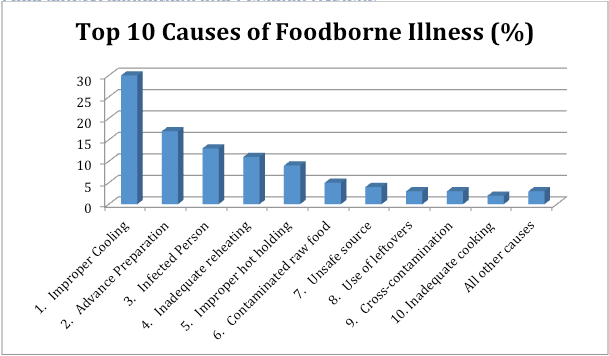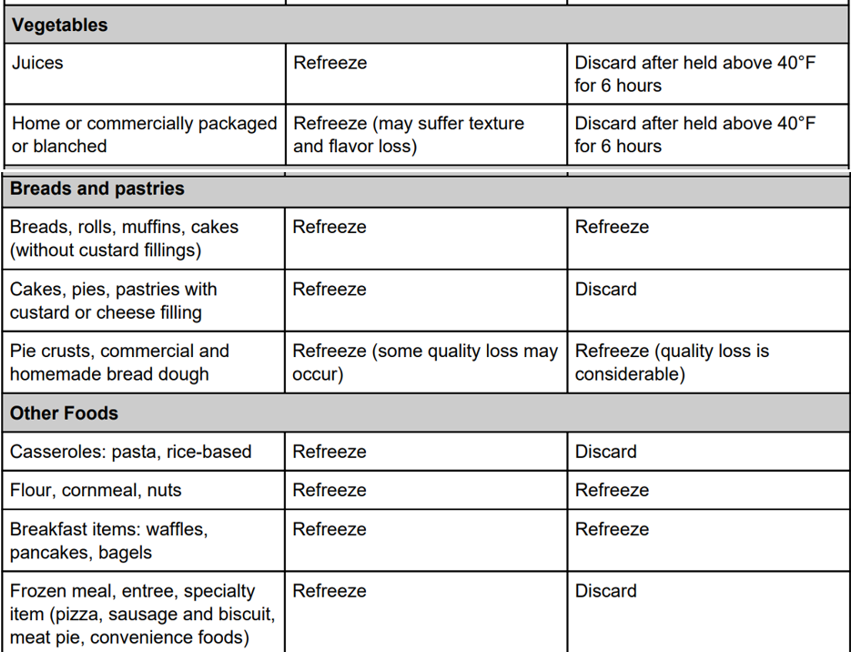Foodborne illnesses, commonly referred to as food poisoning, are a significant public health concern worldwide. The Centers for Disease Control and Prevention estimate that millions of people suffer from foodborne diseases annually. These illnesses occur when harmful organisms or substances contaminate the food we consume, leading to a range of symptoms that can vary in severity. Understanding the causes, recognizing the symptoms, and knowing how to prevent and treat food poisoning are essential steps in safeguarding your health and the health of those around you.

What Causes Food Poisoning?
Food poisoning is primarily caused by consuming food or drinks contaminated with harmful microorganisms or toxins. These contaminants can enter the food supply at any stage, from production to preparation. Below are the main categories of contaminants responsible for food poisoning:
Bacteria
- Salmonella: This bacterium is often found in raw or undercooked poultry, eggs, and unpasteurized milk. It is one of the most common causes of foodborne illness.
- Escherichia coli (E. coli): Certain strains of this bacterium can produce toxins that cause severe gastrointestinal symptoms. Contaminated ground beef, raw vegetables, and untreated water are common sources.
- Campylobacter: This bacterium is frequently associated with raw or undercooked poultry and unpasteurized milk. It is a leading cause of diarrheal illness.
- Listeria: Listeria monocytogenes can grow at refrigeration temperatures, making it particularly dangerous. It is often found in deli meats, soft cheeses, and smoked seafood.
Viruses
- Norovirus: This highly contagious virus is a leading cause of foodborne illness. It spreads easily through contaminated food, water, surfaces, and close contact with infected individuals.
- Hepatitis A: This virus can be transmitted through contaminated food or water, causing inflammation of the liver and other symptoms.
Parasites
- Toxoplasma gondii: This parasite is often found in undercooked or raw meat and contaminated water. It poses a particular risk to pregnant women and individuals with weakened immune systems.
- Giardia lamblia: This parasite is commonly associated with contaminated water and can cause prolonged gastrointestinal distress.
Toxins
- Staphylococcus aureus: This bacterium produces toxins that can contaminate food, especially if it has been improperly handled or stored.
- Clostridium botulinum: This bacterium produces a potent neurotoxin that can lead to botulism, a rare but life-threatening condition.
Symptoms of Food Poisoning
The symptoms of food poisoning can vary depending on the type of contaminant involved. However, some common signs include:
- Nausea and vomiting
- Diarrhea, which may be watery or bloody
- Abdominal pain and cramps
- Fever and chills
- Headache and fatigue
- Muscle aches and weakness
In severe cases, food poisoning can lead to dehydration, kidney failure, or even death. Vulnerable populations, such as young children, elderly individuals, pregnant women, and those with weakened immune systems, are at higher risk of experiencing severe symptoms.
How to Prevent Food Poisoning
Preventing food poisoning involves adopting safe food handling practices and being mindful of food safety guidelines. Here are some key strategies to minimize the risk of contamination:
Practice Proper Hygiene
- Wash your hands thoroughly with soap and water before and after handling food.
- Clean kitchen surfaces, utensils, and cutting boards regularly to prevent cross-contamination.
- Avoid touching your face, hair, or other non-food items while preparing meals.
Store Food Safely
- Refrigerate perishable foods within two hours of purchase or preparation.
- Keep raw meat, poultry, and seafood separate from other foods in the refrigerator.
- Use airtight containers to store leftovers and label them with the date to ensure they are consumed within a safe timeframe.
Cook Food Thoroughly
- Use a food thermometer to ensure that meat, poultry, and seafood reach their recommended internal temperatures.
- Avoid consuming raw or undercooked eggs, meat, and seafood.
- Reheat leftovers to an internal temperature of at least one hundred sixty-five degrees Fahrenheit.
Be Cautious with Water and Beverages
- Drink only pasteurized milk and juices.
- Use bottled or boiled water when traveling to areas with questionable water quality.
- Avoid ice made from tap water in regions where waterborne illnesses are common.
Choose Safe Food Sources
- Purchase food from reputable suppliers and grocery stores.
- Inspect food packaging for signs of damage or tampering.
- Avoid eating food from street vendors or unlicensed establishments in areas with poor sanitation.
Treatment for Food Poisoning
The treatment for food poisoning depends on the severity of the symptoms and the type of contaminant involved. In most cases, mild food poisoning resolves on its own without medical intervention. However, certain measures can help alleviate discomfort and speed up recovery:
Stay Hydrated
Dehydration is a common complication of food poisoning due to vomiting and diarrhea. To prevent dehydration:
- Drink plenty of fluids, such as water, clear broths, and oral rehydration solutions.
- Avoid alcohol, caffeine, and sugary drinks, as they can worsen dehydration.
- Sip small amounts of liquid frequently if nausea makes it difficult to drink large quantities at once.
Rest Your Digestive System
Giving your digestive system time to recover is essential. Follow these tips:
- Eat bland, easy-to-digest foods like rice, bananas, applesauce, and toast.
- Avoid fatty, spicy, or heavily seasoned foods until you feel better.
- Gradually reintroduce solid foods as your symptoms improve.
Use Over-the-Counter Medications
In some cases, over-the-counter medications can provide relief:
- Anti-diarrheal medications like loperamide can reduce the frequency of bowel movements.
- Antacids may help alleviate nausea and indigestion.
- Consult a healthcare provider before using medications, especially for children or individuals with underlying health conditions.
Seek Medical Attention
While most cases of food poisoning are mild, certain situations require immediate medical attention:
- Symptoms persist for more than three days.
- There is blood in vomit or stool.
- Severe dehydration occurs, characterized by dry mouth, dizziness, and reduced urination.
- High fever or neurological symptoms like blurred vision or muscle weakness develop.
In severe cases, hospitalization may be necessary to administer intravenous fluids, antibiotics, or other treatments.
Special Considerations for High-Risk Groups
Certain groups of people are more susceptible to foodborne illnesses and may experience more severe symptoms. Special precautions should be taken to protect these individuals:
Pregnant Women
Pregnant women should avoid consuming raw or undercooked meat, fish, and eggs, as well as unpasteurized dairy products. These foods can harbor harmful bacteria like listeria, which pose risks to both the mother and the unborn child.
Young Children
Children have developing immune systems, making them more vulnerable to foodborne illnesses. Parents and caregivers should ensure that children eat properly cooked food and avoid sharing utensils or drinks with others.
Elderly Individuals
As people age, their immune systems weaken, increasing their susceptibility to infections. Older adults should prioritize food safety and consult a healthcare provider if they experience symptoms of food poisoning.
Individuals with Weakened Immune Systems
People with chronic illnesses, undergoing chemotherapy, or taking immunosuppressive medications should exercise extra caution when handling and consuming food. They should avoid high-risk foods and seek medical advice promptly if they suspect food poisoning.
Final Thoughts
Food poisoning is a preventable condition that can have serious consequences if not managed properly. By understanding the causes, recognizing the symptoms, and adopting safe food handling practices, you can significantly reduce your risk of falling ill. Remember that prevention is always better than cure, and staying informed is the first step toward protecting yourself and your loved ones from foodborne illnesses.





